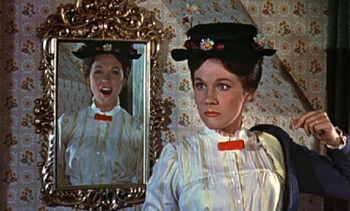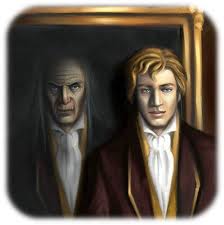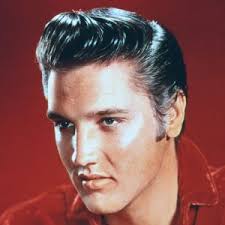J.M. Barrie’s left hand man:
While researching the theme of Jekyll and Hyde personalities in popular culture, I came across this quote from a lecture by J. M. Barrie, the author of Peter Pan:
“M’Connachie, I should explain…is the name I give to the unruly half of myself…he prefers to fly around on one wing. I should not mind him doing that, but he drags me with him…don’t copy me. Beware of M’Connachie. When I look in a mirror now it is his face I see…You will all have your M’Connachies luring you off the high road. Unless you are constantly on the watch, you will find that he has slowly pushed you out of yourself and taken your place. He has rather done for me.”
It is also interesting to note that Barrie was right-handed but due to getting writer’s cramp, he had learnt to write with his left hand. He once observed that the material he produced with his left hand was darker and more sinister than the apparent happier stuff he had produced with his right hand.
Barrie is not alone. Many of us seem to have a double-sided nature with our own personal M’Connachies luring us off the straight and narrow. This is the self saboteur within us that either prevents us from having success or prevents us from enjoying success after we have attained it.
But is our shadow self really an inner demon or just an infant crying out for help?
Whatever happened to Baby Gray…
I once knew of a little girl who told her mother that she didn’t want to get old. Her mother then told her about an old man she supposedly once knew: “Dorian Gray wished that he would never look old so he didn’t. But all his faces in his photographs got old instead!”
The prospect of her face changing and ageing in photographs was a more frightening prospect to the little girl than the idea of getting old herself. “I take it back! I do want to get old!” she said, hoping that she hadn’t cursed herself.
She didn’t realise that her mother was only joking and assumed that Dorian Gray was some old man or neighbour that her mother had known in Trinidad.
Some time later, she saw an ancient black-and-white movie called The Picture of Dorian Gray on TV and realised – with some relief– that it had just been her mother’s joke and that perhaps she hadn’t cursed herself after all.
Oscar Wilde’s classic novel The Picture of Dorian Gray is another example from literature of the concept of the “Shadow Self” taking on a life of its own, taking on the attributes and faults that the conscious self doesn’t want to face up to.
In the Dr Jekyll story, Henry Jekyll doesn’t want to face up to his baser instincts and desires so Mr Hyde gets to live them out instead. In Dorian Gray, the “hero” doesn’t want to face up to the prospect of ageing so his portrait takes on the ageing process instead – as well as taking on all the ugly facial ravages of someone who has enjoyed an exceedingly immoral life.
The portrait becomes Dorian Gray’s soul, a true reflection of his ugly inner self while he retains the mask of youth and the face of an innocent angel.
And what happened to the little girl who told her mother that she didn’t want to get old? Well, she is now forty but she hasn’t really aged. In fact, just the other day, a colleague said to her, “You’re lucky. You still look like a teenager!” Whoops.
The Curse of Peter Pan
In my book Manifestation Psychology, I wrote that the Shadow Self is the oldest part of our mind because it has been with us since childhood but that it is also the youngest part of us because it hasn’t really evolved since then.
The Shadow Self can be viewed as the dark side of the Inner Child. It is the part of the mind that resists change.
Perhaps it’s for this reason that I find the opening paragraph of the book Peter Pan a little bit chilling. In Chapter One, it says:
All children except one grow up…One day when [Wendy] was two years old she was playing in a garden, and she plucked another flower and ran with it to her mother… Mrs. Darling put her hand to her heart and cried, “Oh, why can’t you remain like this for ever!” …henceforth Wendy knew that she must grow up. You always know after you are two. Two is the beginning of the end.
To resist growing up and the inexorable march of growth and maturity is to resist the natural expansion of individual consciousness.
The writer Uell S. Andersen wrote: “…he who would stop death would stay an infant forever.”
Magic Mirrors and Plato’s cave
In the novel Rebecca by Daphne du Maurier, the nameless narrator, Mrs de Winter, dreams that she is writing a letter but then she notices that the handwriting is not her own. Then when she looks at her face in the mirror, it is not her face that stares back at her from the glass.
“The face in the mirror stared back at me and laughed…I so identified with Rebecca that my own dull self did not exist.”
Mrs De Winter, who is so anonymous that even the author doesn’t bother to give her a first name, lives forever in the shadow of her predecessor, Maxim de Winter’s first wife, the glamorous and exciting Rebecca.
Sometimes we see our shadow and mistake this image as the true representation of our real self.
In Plato’s Allegory of the Cave, a group of people are chained to the wall of a cave. There is a fire behind them which projects shadows onto the wall. The people cannot see what is behind them. They can only see the shadows which they mistake for reality.
People fear the light which represents truth. This also brings to mind the famous quote by Marianne Williamson: “It is our light, not our darkness that most frightens us.”
The other part of this famous quote is: “Our deepest fear is not that we are inadequate. Our deepest fear is that we are powerful beyond measure.”
It seems that in human nature, we are often as afraid of our gifts and talents as we are of our weaknesses, faults and sins.
Marianne Williamson herself presents a scary picture of a Shadow Self in a chapter entitled “Hell” in her book A Return to Love. The image was of a violent hysterical woman stabbing a little girl dressed in white right through the heart with a knife. She writes, “I suspected that both characters were me…with every passing year, I grew more afraid of that woman with the knife.”
Elvis-Marilyn Syndrome
Successful artists, actors, singers, musicians and so forth seem to be especially vulnerable to the self-destructive aspect of the Shadow Self.
Elvis-Marilyn Syndrome is a phrase that I’ve heard used by teacher, writer, singer and general Renaissance person David Wilcock to describe the psychological phenomenon of people who have attained a superior level of material and commercial success and who should by society’s standards and expectations be ecstatically happy – but who appear to be more miserable and unhappy than the rest of us put together.
On a documentary programme about the last days of Whitney Houston, a psychologist said that when the average person gets trapped in a self-destructive downward spiral, they eventually run out of money to keep doing what they have been doing and end up hitting rock bottom losing everything – home, family, relationships, livelihood pretty fast. The average person usually has more incentive to get out of their trap and to rid themselves of their demons.
On the other hand, if someone is or “has been” an extremely successful celebrity, there is always somebody available to enable any self-destructive habits they might have because they are wealthy and powerful enough to never to hit rock bottom. In fact, the only bottom they may eventually hit is a tragic, premature, sudden but not altogether unexpected demise.
The Shadow is the embodiment of all our fears and humans tend to fear being exposed, ageing and death. As Marianne Williamson succinctly put it in her Hell chapter, “We are afraid of dying young…we’re afraid of growing old.” Unfortunately we can’t have it both ways. Unless you believe in ghosts…
On the subject of reflections and shadows taking on a life of their own: Marilyn Monroe’s reflection is said to haunt a mirror in the Hollywood Roosevelt Hotel (the same hotel where the ghost of actor Montgomery Clift can be heard playing a trumpet). The mind boggles.
Sam Punch is the author of Manifestation Psychology and Vocation, Vocation, Vocation!






